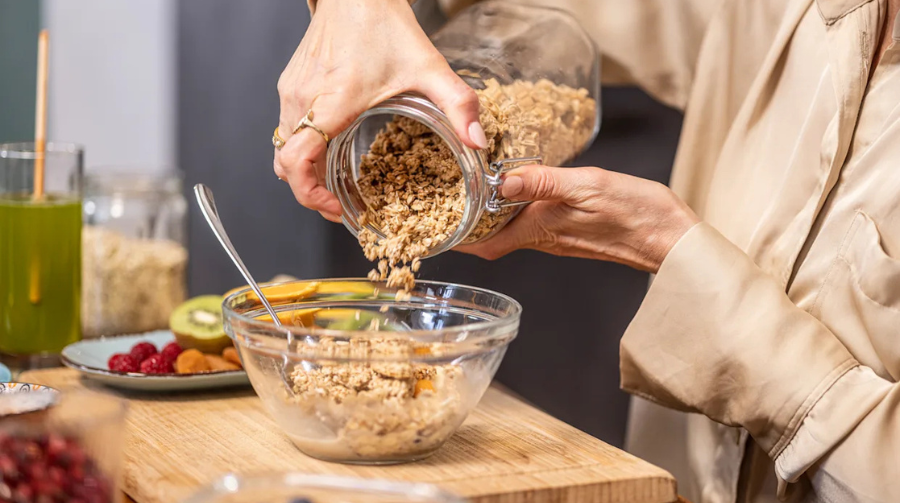Health & Wellness
Ragi vs Oats: What Should Diabetics Really Eat in the Morning?
Breakfast is often called the most important meal of the day, and for people living with diabetes, it becomes even more crucial. The first meal of the morning sets the tone for blood sugar levels, energy, and satiety for the rest of the day. While sugary cereals and refined foods can cause dangerous spikes in glucose, nutrient-dense grains like ragi (finger millet) and oats are often recommended by nutritionists. But which one is truly the better option for diabetics?
According to health experts, both ragi and oats can be beneficial, but their effects differ slightly depending on your health priorities. Dr. Anshul Singh, Team Leader of Clinical Nutrition and Dietetics at Artemis Hospitals, explains, “Both ragi and oats are nutrient-rich options. The choice really depends on your health goals and how you prepare them.” Let’s take a closer look.

Ragi for Diabetes: A Traditional Super Grain
Ragi, or finger millet, has been a staple in Indian households for centuries. Known for its rich nutrient profile, it is particularly valued for its high levels of iron, calcium, and dietary fibre. The grain also has a low glycaemic index (GI), meaning it releases sugar slowly into the bloodstream instead of causing sudden spikes.
“Ragi is excellent for diabetics as its fibre keeps you fuller for longer, reduces hunger pangs, and supports smooth digestion,” notes Dr. Singh. Ragi also contains polyphenols, plant compounds that further support glucose control and help combat oxidative stress, a common concern in diabetes management.
However, preparation plays a big role. While traditional deep-fried ragi snacks or sweet ragi laddoos may add excess oil or sugar, healthier alternatives like fermented ragi dosa, ragi porridge, or ragi malt offer all the benefits without harmful additives.
Oats for Diabetes: The Global Favourite
Oats, on the other hand, have gained international recognition as a “heart-healthy” grain. Their star nutrient is beta-glucan, a soluble fibre that slows digestion, reduces glucose absorption, and improves insulin sensitivity.
“Oats are an excellent breakfast choice for diabetics not only because they stabilize blood sugar but also because they reduce bad cholesterol, lowering the risk of heart disease,” explains Dr. Singh. Since people with diabetes are more prone to cardiovascular problems, oats can offer double protection.
But here too, the choice matters. Flavoured or instant oats often contain hidden sugars, artificial flavourings, and preservatives, which can undo the benefits. Nutritionists strongly recommend sticking to rolled oats or steel-cut oats, which can be cooked into porridge, added to smoothies, or turned into savoury dishes like vegetable oat upma.
Ragi vs Oats: Which Should You Choose?
The truth is, there is no clear “winner.” Both ragi and oats have unique benefits, and the best choice depends on your health goals.
- Ragi is perfect if you’re looking for a traditional, calcium-rich, and iron-boosting grain that supports bone health and long-lasting satiety.
- Oats are ideal if your priority is cholesterol control, gut health, and reducing the risk of heart disease.
Dr. Singh recommends not choosing one over the other but rather including both in rotation: “The best approach is to enjoy ragi on some days and oats on others. This way, you get a wider range of nutrients, prevent food monotony, and support overall health.”
The Golden Rules for Diabetic-Friendly Breakfasts
No matter which grain you choose, a few guidelines remain essential:
- Always opt for unprocessed, natural versions.
- Avoid excess oil, ghee, sugar, or jaggery while preparing.
- Pair your grains with vegetables, pulses, or protein-rich foods for a balanced plate.
- Keep portion sizes moderate to avoid calorie overload.
Ultimately, the best diet for diabetes is not about obsessing over one single food but about balance, variety, and consistency. Whether it’s a warm bowl of oats with nuts or a comforting plate of ragi dosa, both grains can support your journey towards better blood sugar control and overall health.